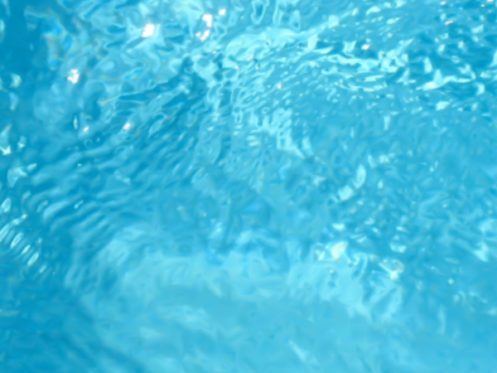Hard water is a problem that affects many people in New York State, and it can create numerous problems for your pipes, plumbing fixtures and appliances. The issue isn’t as serious in the Newburgh area as it is in many places further upstate, but our water is still classified as moderately hard. When dealing with hard water in your home, the only solution to overcome the problem is to install a water softener. With this in mind, let’s look at what hard water is, the problems it can cause and how water softeners can work to prevent hard water issues.
Understanding the Hard Water Problem
When referring to the hardness of water, what we’re talking about is its concentration of dissolved minerals. Hard water has a high concentration of calcium, magnesium and other minerals. The reason that some places have hard water is because of where their water supply comes from. Areas that get their water from a river or lake tend to have much harder water. This is why cities like Buffalo have especially hard water because they get their water directly from Lake Erie. On the other hand, areas that get their water from an underground aquifer or watershed usually have a lower concentration of minerals.
Hard water isn’t a problem in terms of your health as it is safe to drink. That being said, it typically has a strong mineral taste that can be quite off-putting. The real issue with hard water is that with the mineral deposits it leaves behind. If you have hard water, you have surely seen evidence of these mineral deposits or limescale on your shower doors and plumbing fixtures or leftover on your dishes after they come out of the dishwasher.
When hard water flows through your plumbing system, some of the minerals can harden and get left behind. Just as the deposits can collect on your shower door, they can also begin to collect on the inside of your pipes. Over time, these mineral deposits can severely restrict the amount of water that can flow through the pipe, and this can reduce both flow rate and water pressure. The mineral deposits can also make it easier for your drain pipes to become clogged for the same reason.
The mineral deposits can also clog up your showers and faucets and cause damage to your water heater, dishwasher and washing machine. If your home has issues with hard water, these appliances are likely to fail sooner or develop leaks or other serious problems.
Hard water is particularly bad for water heaters and other appliances that use hot water. The hotter the water is, the easier it is for calcium and magnesium to harden and solidify. The mineral deposits form a hard layer of sediment on the bottom of the tank. When mineral deposits build up inside a boiler or water heater, it eventually results in reduced performance, decreased efficiency and higher energy costs.
The sediment can create hot spots inside the tank, which can lead to corrosion of the tank or damage the unit’s heating element. Sediment build-up also causes water heaters to make loud knocking noises. This noise results from air bubbles rising up through the settlement, which disturbs the minerals and causes them to knock against the side of the tank.
Washing your clothes in hard water also makes them feel stiff and scratchy. Similarly, bathing in hard water will typically leave your skin feeling itchy and dry, and you may also notice that your soap won’t lather as well with hard water. When the minerals in hard water mix with soap or laundry detergent, it tends to form a scum instead of lathering. This means that you will need to use much more laundry detergent to get your clothes fully clean. This scum can also collect inside your sink, shower and drains, which increases the risk of clogging.
How Water Softeners Eliminate Hard Water
Water softeners are designed to eliminate hard water problems by filtering out the minerals, and it does this through a process known as ion exchange. Positive and negative ions attract similar to the way how the positive and negative poles of magnets are attracted to each other. Water softeners use this principle to attract the dissolved minerals so they can be filtered out.
The water softener tank is filled with tiny resin beads that contain a negative charge. Calcium and magnesium ions in hard water carry a positive charge. As the hard water flows through the resin beads, the positively charged mineral ions are attracted and stick to the negatively charged resin beads. This traps the minerals inside the tank, and the now soft water flows out of the tank into your plumbing system.
Over time, the concentration of minerals inside the tank continues to rise. This means that there are fewer and fewer negatively charged resin beads for the minerals to stick to. Eventually, this would cause the system to stop working altogether as there would be not enough free negative ions left. Water softeners overcome this problem by using a salt brine to occasionally flush or recharge the tank.
Next to the mineral tank is the brine tank. This tank contains sodium (or sometimes phosphorous) pellets that occasionally need to be replaced. In the bottom of the tank, the salt mixes with water to create a heavy brine.
When recharging, the system draws the salt brine into the mineral tank. Sodium ions are positively charged, and positive ions repel other positive ions. This means that as the salt ions flow through the resin beads, they repel the positively charged calcium and magnesium ions. This causes the beads to release the minerals, which frees up the resin beads so that they can again attract more particles. The salty, mineral-laden water is then flushed out of the tank, and lastly, the tank is rinsed with fresh water so that it can start working properly again.
Benefits of Installing a Water Softener
Installing a water softener can provide several important benefits for your plumbing system and your appliances. By ensuring your water isn’t filled with minerals, you can prevent limescale from building up inside your pipes and causing issues with low water pressure or clogging. This is hugely important as it protects your pipes from damage and prevents potentially costly repairs.
By far the biggest benefits of using a water softener are that it protects your appliances from damage and reduces your energy costs. Hard water can dramatically shorten the lifespan of your dishwasher, washing machine, water heater, ice maker and even your coffee maker. It also reduces the energy efficiency and effectiveness of these appliances. By installing a water heater, you can help to extend the life of these appliances and also ensure that they continue to work as efficiently as they should.
Water softeners also ensure your clothes look and feel cleaner and your dishes won’t come out streaked and covered in water spots. You will also likely notice that your skin feels softer and that you have fewer issues with irritation, dryness and itchiness.
If you’re looking to install a water softener for your home, Polar Plumbing, Heating & Air Conditioning is ready to help. Our team of professional plumbers has years of experience installing water softeners in Newburgh and the surrounding areas. We can also handle any water heater repair or maintenance needs to ensure your system continues to function properly. To learn more about the benefits of water softener installation, or if you need any other plumbing service, give us a call today.

